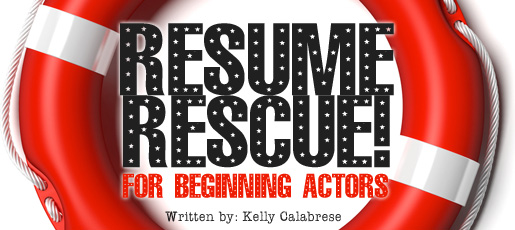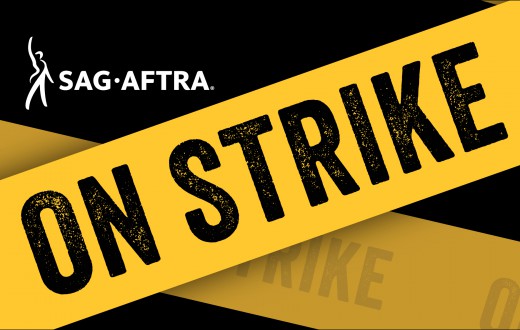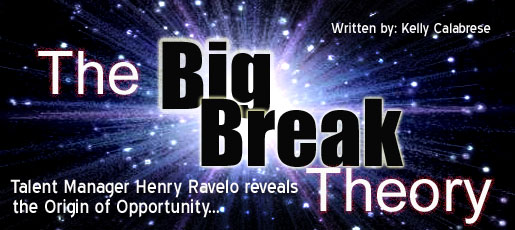All the world may be a stage, but aspiring actors still need to put in some serious effort if they wish to begin pounding the pavement to Broadway or Hollywood and be successful. For starters, new actors need to commit to getting a professional headshot with a resume to back it.
But how do you create a, Actor Resume, when you’re just starting out and have very few credits?
Never fear – Grant Kretchik is here to reveal the ins and outs of newbie resumes!
 As the head of BFA acting and the associate chair of performing arts at Pace University, Grant Kretchik inspires countless actors on their journey toward stardom. His Essay With Talent Comes Responsibility! Defining your Dream was published in The Soul of the American Actor.
As the head of BFA acting and the associate chair of performing arts at Pace University, Grant Kretchik inspires countless actors on their journey toward stardom. His Essay With Talent Comes Responsibility! Defining your Dream was published in The Soul of the American Actor.
Grant holds an MFA in Acting from the New School University. He has worked as both an actor and director at La Mama etc., and has appeared Off-Broadway and in Film/TV including When Harry Tries to Marry (Official Selection Austin, Mumbaiand London film Festivals). In 2012 Kretchik assisted Michael Grief on the first Broadway National Tour of Next to Normal. Other directing credits include Scottish Sperm (world premier) the Edinburgh Fringe Festival that also went on to perform in Montreal, Canada with Zoofest and Just for Laughs, and The Parade by Tennessee Williams at the Tennessee Williams Theater Festival in Provincetown, MA.
It is with great pleasure that Grant shares his insights with NYCastings!
Q & A with Grant Kretchik
Q: What advice do you give your students, those just starting out, about their resumes?
First advice is to never lie. People have been caught, and it’s just not worth it. Casting directors are much more open to resumes with white space then they are to lies. An example of a lie is some people do scene work in class and then put that credit on the resume. That’s not good. That kind of thing goes under training.
When it comes to resumes, while there are some variations on resume templates there are certain standards that the industry is trained to read. So, it is important to have a coherent resume that isn’t re-inventing the wheel – a resume that makes it really simple for the industry to read and asses where you have been and what you have done.
Not having a ton of work doesn’t always hurt you. A resume is interesting because it tells us who you are, where you are coming from, and where you have been – as well as who you have worked with. If you have worked with someone the casting director knows that gets them excited.
And, it’s important to remember that even having stellar credits doesn’t book you the job. You are the only one who is going to book you the job.
Q: What should new actors put on their resume when they haven’t worked on many projects?
When you don’t have a ton of credits, it is very important to have training and to have a really professional headshot. If you are new, you have no way of showing that you mean it other than showing that you have a really professional headshot, you have had it re-touched, and you have thought about who you are and what you look like.
A good headshot, if it is really specific to the role or the type they are looking for, can get you called in even if you don’t have a ton of experience.
So, one of the best ways to combat not having a stellar resume is to have a professional headshot. Casting directors really want to see some indication that you are serious about the business, and that you are investing in training. I think that goes a long way.
Q: What are the essential elements of a beginning actor’s resume? And what order should these elements be in?
Training traditionally goes at the bottom of the resume, after you break down your credits in compartments by theater or dinner theater, and Broadway / Off-Broadway. If there is really nothing, then you can lead with education. I don’t think there is any relevant place to put audience extra or that you went to an MTV taping. It is better to have nothing than something like that because ultimately what you are saying is I don’t even know enough to know that I shouldn’t put that on there.
Q: Should they ever list background work?
Yes, you can put extra work on your resume when you are starting out because it at least shows that you have the tenacity, or ambition, or resource within yourself to secure that extra work. The other reason why extra work is important when you are first starting out is that work begets work.
If you just arrived in the city, or you’ve just woken up and decided you want to be an actor, you might not have the network of people to surround yourself with to get to the next project or to create a project. It’s important to put yourself in any situation, whether its a scene study class or extra work, that can help you get to the next big thing. I wouldn’t list a lot of extra work, just a handful. It’s also a good place to start to get your waivers. There are good things about extra work and certainly if you don’t have anything, extra work is better than listing audience member.
If you’ve done work as background on a Scorsese film and on a web series that someone invented, it’s better to put the Scorsese film than include five other new media projects. It is a case by cases basis. There is no hard and fast answer. But extra work can be a start. And then, get yourself in a class!
Q: What are some of the best ways for green actors to build credits in NY?
Webisodes, new media castings, and student projects are great ways to start getting experience.
Student films are great because it puts a film on your resume and gives you something to put in another person’s hand as a reel. When you assemble a reel, there is an investment in it. There is an investment in getting a good headshot. There is an investment in not only doing a student film for free but in taking that student film footage and the webisode footage and putting it together in a reel that is at least standard. The reel can’t be thrown together like here watch this twenty minute student film. Fifteen minutes in, you’ll see me for two minutes. That is not useful to anyone and nobody has the time to sift through it.
It is important to show on your resume that you are invested in this as your career, as a life style, as something that you are actively seeking and have a certain amount of commitment to. Again, it is going to go back to – I’m in a class. I’m training. I am trying to do student films. I may know nothing, but I did somehow manage to get myself this extra spot. Things like that help to communicate that you are actively pursuing a career in acting. You aren’t just handing them a twenty minute clip when you are in two minutes of it. Doing something like that isn’t telling them that you are in a film. You are telling them that you are not smart enough about the industry to know that you should put that together in a reel.
Sometimes, it is about what you are not telling them.
Another good way to start is the Discovery shows, these reenactments. They are usually shot well, and are well lit. They aren’t well paid but it’s a good place for green actors to get some work. And, for people who are looking to put together a reel to get some good clips.
Q: When a person has no training whatsoever, where should they start?
With classes! If you can’t take a class – see stuff. You can make an effort to be able to speak well about what is happening on Broadway and Off-Broadway. If you can’t afford to see shows, read. Read everything – not just plays. Read what is hot in the industry, what is coming out, what’s trending. Read. Read. Read. So when you get into an office and they ask what have you done? you can quickly parlay that question into I saw this, and I imagine that I’m really right for this role. Or, I can see myself playing this type of person.
Create talking points. It isn’t like I grew up here. Create talking points that are topical, timely, and trending. Know what is trending. Know what Brantley said, and what Time Out New York said. Not just about Broadway, but the smaller shows too.
Q: You direct many projects, what is your personal impression when you see a resume with few credits?
I would be a liar if I said it didn’t hurt you. But, depending on my budget I might think that I can get this person to do it for experience. If I am working on a project that is going to be strung together for two dollars and I have an actor who can breathe, and they are remotely good, and can emote, and can fill the role – then there you go.
Q: On the same note, what is your personal impression when you see a resume with many credits that aren’t real credits?
If the resume isn’t easy to read, I may not read it. I am looking at so many resumes. If the resume isn’t well assembled, then when I turn that resume over the headshot better be stunning. Then, I might spend some time trying to sift through what’s on the resume. But not having it orderly says that you don’t know – that you haven’t been pro-active trying to know. Sitting here right now I can Google: Actors Resume Template. There is no excuse for laziness.
Q: What inspirational advice do you have for new actors?
My advice to new students is to really know who you are. I don’t mean – Who are you? To your own self be true. I mean really know who you are, where you fit in this industry, what roles are happening on Broadway and Off-Broadway, what roles are being cast in episodics and film, and what roles you are right for. Because, submitting for roles that you aren’t right for is saying that you have no idea who you are. Defining type, especially for a young actor, is hard because the type is that they are young. Type is hard to figure out, but you’ve got to raise your consciousness about who is working that looks like you. Who has your shape? Who has your size? And, what they are doing?
Know who you are, and what you are selling, and be able to talk about it. Not just in relation to what you think and feel but who you are in relationship to the business, this industry, and what you are offering.
Not what they can offer you, but what you can offer them.
And… My advice is to always seek advice.
– Thank you Grant Kretchik for helping to launch new stars into the universe!







